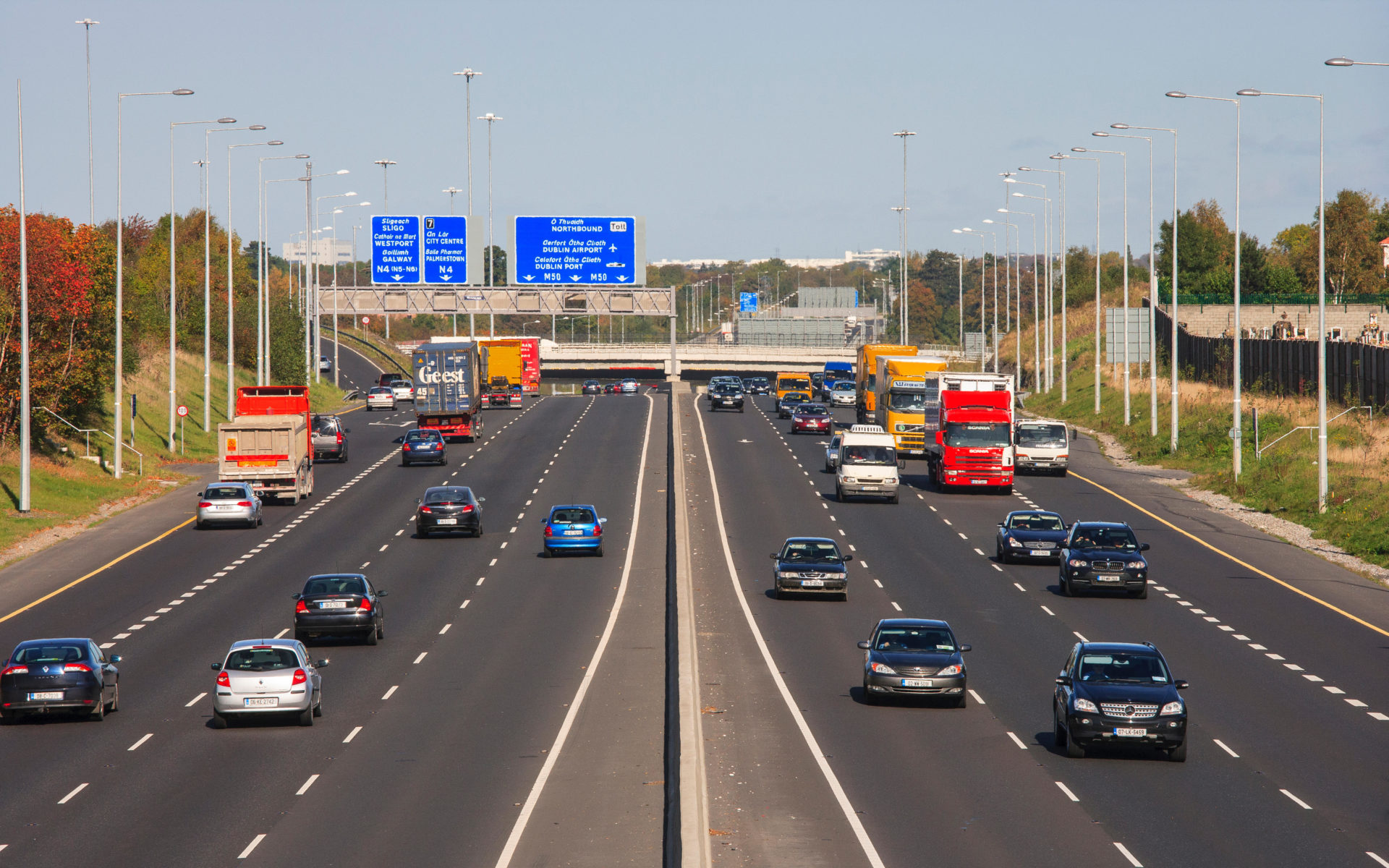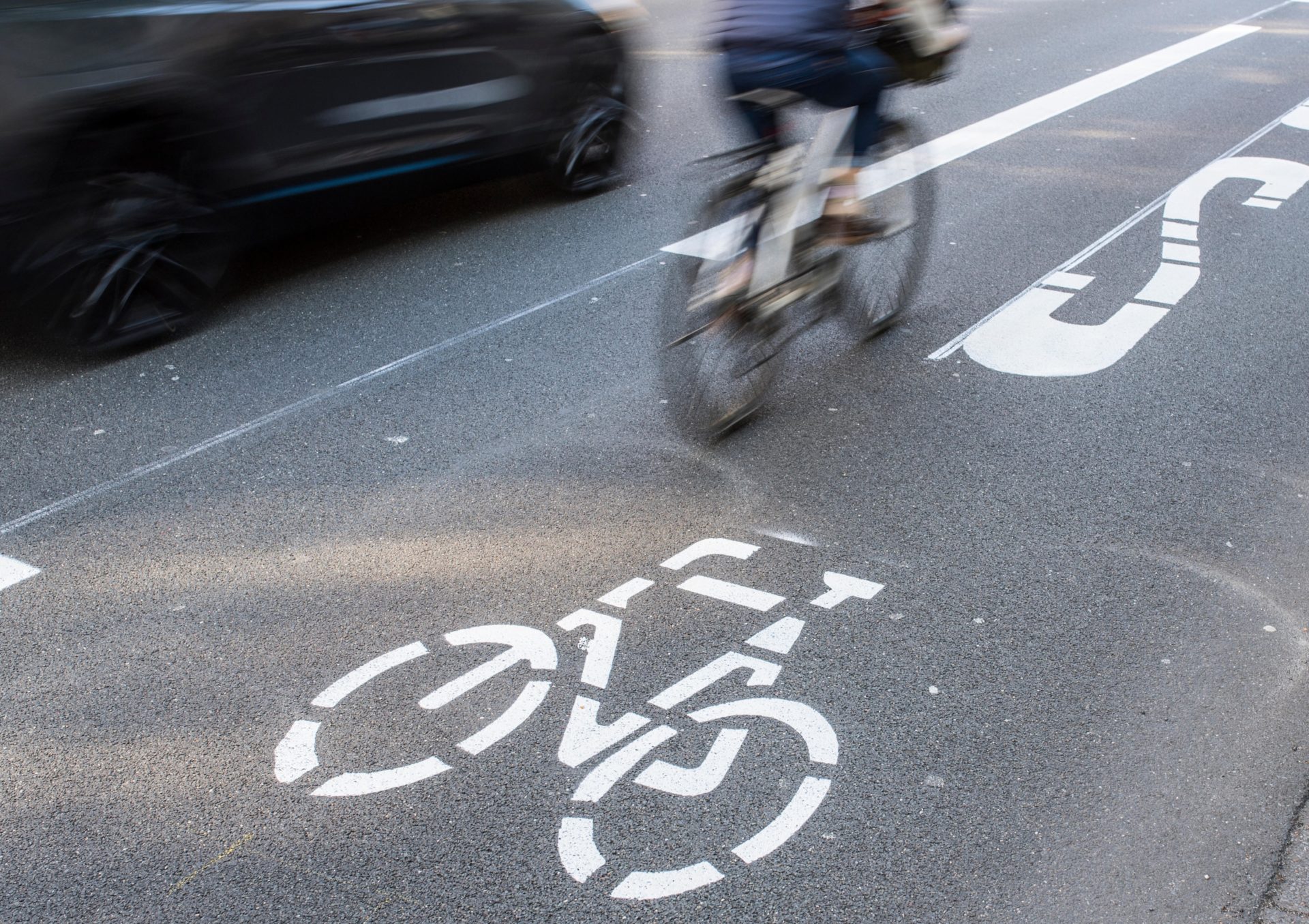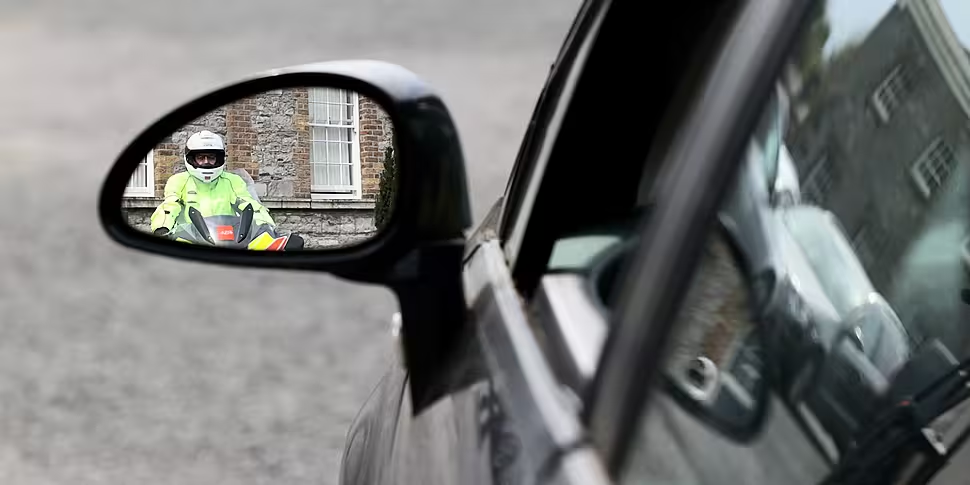Experts aiming to reduce road deaths in Ireland should be examining road design rather than driver behaviour, a traffic engineer has said.
University of Colorado Professor of Civil Engineering Wesley Marshall said current data on road deaths doesn't even examine potential issues with road design.
He told Newstalk Breakfast it is "too easy" to blame most crashes on road users.
"I know in a lot of US cities a lot of the roads that were built in the 1700 and 1800s - well before traffic engineering ever existed - those sometimes are the safest ones," he said.
"When I think about safety it's not just fender benders, you really need to think about safety in terms of fatalities and severe accidents.
"If you're getting those more severe crashes that's where your real problem is, it's not where the fender benders are."
 M50 motorway in Dublin. Image: Peter Cavanagh / Alamy
M50 motorway in Dublin. Image: Peter Cavanagh / AlamyProf Marshall said we have to think more about design when it comes to road safety.
"If we design a road that is maybe overly wide and overly straight and we throw up a speed limit sign to artificially lower people's speed on it we blame them for doing so even though the traffic engineers provided this road," he said.
"If somebody jaywalks and gets killed, we blame them for jaywalking.
"Often times you zoom out and you look around and there's no safe place to cross. You can start to understand why they did what they did."
Prof Marshall said better enforcement of laws is usually "a short-term solution" for road safety.
"It's the same with trying to educate road users to do better; if you look at the research that has historically shown not to help at all," he said.
"I think we need to go back to putting the onus on people like me, the traffic engineer who designs the transportation system to do better with engineering".
'Shared spaces'
Prof Marshall said road users need to be properly segregated.
"You see a lot of shared spaces where you've all the modes mixed together," he said.
"Oftentimes what happens is we slow cars down enough where they are safe for the other road users.
"The problem often comes when we're trying to shove a bike lane on to a bigger, faster road.
"Then we combine that with the bigger cars a lot of people are driving these days [and] it's not a good mix."
 A person cycling in a bike lane, 16-4-19. Image: Hympi / Alamy
A person cycling in a bike lane, 16-4-19. Image: Hympi / AlamyProf Marshall said there needs to be 'real protection' for vulnerable road users.
"I'm not just talking about paint or plastic sticks, [we need] actual real bollards or something that is more substantial," he said.
"In one of my recent presentations, I showed videos of them testing [the plastic sticks] at 50+ km/h
- cars and trucks can drive right over them and they just pop back up."
He added that while such measures might help with traffic calming, they "don't do much" to protect the people on the other side.
There have been 123 deaths on Irish roads so far this year - an increase of 12 on the same time last year.









